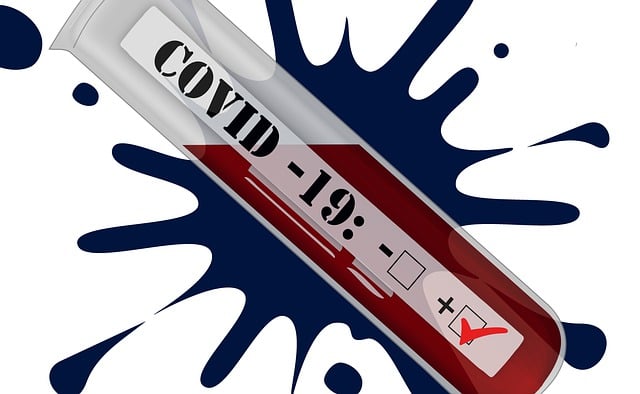Vitamin B12 deficiency is a growing concern in the UK, affecting people of all ages and backgrounds. Recognizing symptoms like fatigue, weakness, memory loss, cognitive issues, and anemia (causing dizziness, shortness of breath, and palpitations) is crucial for early intervention. At-risk individuals should consider the UK Advanced Thyroid Blood Test to check B12 levels, preventing severe neurological damage and allowing timely treatment with supplements or injections. This test evaluates thyroid function (T3, T4, TSH), provides insights into potential deficiency, and identifies relationships between the thyroid and B12 that impact metabolism and energy production. High homocysteine levels and enlarged red blood cells indicate deficiency, linked to nerve damage and cardiovascular disease risks. Discussion with a healthcare professional is essential for personalized advice and treatment.
In the pursuit of optimal health, understanding vitamin B12 deficiency is paramount. This comprehensive guide delves into the crucial aspect of diagnosis through UK Advanced Thyroid Blood Tests, offering a clear path for individuals concerned about their nutritional status.
We explore the subtle yet profound symptoms and associated risks of B12 deficiency, providing insights into how this common yet often overlooked issue can impact overall well-being. By interpreting the results of the advanced thyroid blood test, readers will gain valuable knowledge to make informed decisions regarding their health.
- Understanding Vitamin B12 Deficiency: Symptoms and Risks
- The UK Advanced Thyroid Blood Test: What to Expect
- Interpreting Your Results: Guide to Blood Test Outcomes
Understanding Vitamin B12 Deficiency: Symptoms and Risks
Vitamin B12 deficiency is a growing concern in the UK, affecting people across all age groups and demographics. Recognising the symptoms and understanding the risks associated with this condition are crucial steps towards early intervention and effective management. Some of the most common signs include fatigue, weakness, memory loss, cognitive impairment, and anaemia, which can lead to dizziness, shortness of breath, and palpitations.
At-risk individuals should consider undergoing an advanced thyroid blood test to check for B12 levels. This is particularly important for those with a history of gastrointestinal issues, as the body may struggle to absorb B12 from food. Additionally, vegetarians and vegans, as well as people with certain medical conditions like pernicious anaemia, are also susceptible to deficiency. Early diagnosis through blood tests can prevent severe neurological damage and ensure timely treatment with B12 supplements or injections.
The UK Advanced Thyroid Blood Test: What to Expect
In the UK, the Advanced Thyroid Blood Test is a comprehensive assessment designed to evaluate thyroid function and overall health. This test goes beyond basic measurements, providing insights into various thyroid markers including T3, T4, and TSH levels. It’s a valuable tool for diagnosing thyroid disorders and identifying potential vitamin B12 deficiency, as thyroid health is intricately linked to nutritional status.
The test typically involves drawing a small sample of blood, which is then analysed in a laboratory. Results offer crucial information about thyroid hormone levels, helping healthcare professionals determine if there’s an underactive or overactive thyroid (hypothyroidism or hyperthyroidism). Moreover, abnormal findings may suggest underlying vitamin B12 deficiency, as the thyroid and B12 have reciprocal relationships affecting metabolism and energy production.
Interpreting Your Results: Guide to Blood Test Outcomes
Interpreting your results from a UK advanced thyroid blood test is crucial to understanding your vitamin B12 deficiency status. If your test shows elevated levels of homocysteine and low vitamin B12, it indicates a potential deficiency. Homocysteine is an amino acid that can build up in the blood when there’s not enough B12 to convert it into other compounds. High homocysteine levels are associated with increased risk of nerve damage and cardiovascular disease.
Your test results will also provide information about your red blood cell (RBC) count and mean corpuscular volume (MCV). Low vitamin B12 levels can lead to enlarged RBCs, as the body tries to compensate for the deficiency by producing larger cells to carry more oxygen. However, these larger cells may not function effectively, leading to anemia-like symptoms. It’s important to discuss your results with a healthcare professional who can offer tailored advice and treatment options if needed.
If you suspect a vitamin B12 deficiency or are experiencing symptoms that could indicate an underlying health issue, the UK Advanced Thyroid Blood Test offers a comprehensive solution. By analysing various blood markers, this test provides valuable insights into your nutritional status and thyroid function. Understanding your test results is crucial for taking appropriate action to address any deficiencies and mitigate associated risks. Remember, early detection through regular screening can make all the difference in managing your health effectively.
